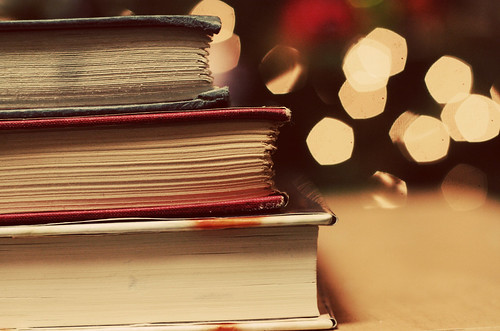If you could see behind the scenes of the blog, you'd probably be appalled at the vast number of Writing 101 posts I've started and stopped writing. I wrote several of them last week in multiple abortive attempts to add content to the blog. More than one of them was a thinly-disguised rant...because a single forum post ticked me off for a solid three days.
Zen and the Art of Stress-Free Forum Maintenance
I've been working a lot lately. I've been on the job most of the time, and when not on the job I've still got stuff to do around the house. There are only two boxes remaining, so I've made a lot of progress...but I'm not done. Two of the biggest projects still loom before me; I've got to do them both tomorrow and attend a bridal shower.
With all this weighing on my mind all week, and deadlines looming over my head, I've been getting only four to five hours of sleep a night. So I'm understandably cranky when I check my forums, which I only have time to do late at night and early in the morning.
I check them after I go through my email first thing in the morning. Early in the week, I got an email from a fellow blogger asking me to pick up one of their review responsibilities. Clearly he doesn't read the blog, or he'd know how shamefully behind I am on my own TBR pile (several authors I know could give him an earful). I was a little affronted, but I got sort of pissed when I got around to checking my forums -- where he posted, in more than one place mind you, asking for help with this same review.
I was sort of enraged by it all, and began a heated Writing 101 lesson about commitments (which may still appear in the future once I've distanced my own feelings from it a bit more). I wrote the whole thing, and had it scheduled, but thankfully second-guessed myself an hour later and changed it to draft.
I repeated this pattern several more times throughout the week, halfway committing to new Writing 101 lessons and then giving up on them entirely. Only one such post made it to the blog this week, and that got a two-day grace period and two false starts before it went live.
And I spent much of the rest of the week grousing to myself every time I went to read the forums, and responding to them more hatefully than ever before. The week was nearly out when I realized that I wasn't really mad about that guy, or even about the forums.
I was mad because I wasn't getting any time to really write. I've been behind on my newest story, and I didn't realize how angry it was making me until I nearly threw my phone over a totally benign post about country-specific terminology. So on Friday, after I completed a long to-do list, I made myself take the time to write.
Back on the Wagon
I finished chapter 4. That's the big news. My Facebook followers know that I've been wallowing in that chapter for some time now, and I'm happy to say I finally tackled it -- a little less happy to admit that I spent three hours writing two pages. Sometimes that's the way it goes. Now I'm on chapter 5, and writing from a whole new POV, so this is exciting stuff. I feel much more comfortable with this chapter.
Surely I'll just burn right through the rest of the outline and get the book completed in record time...just kidding. That definitely won't happen, but I am in a much better mood at the week's end.






























